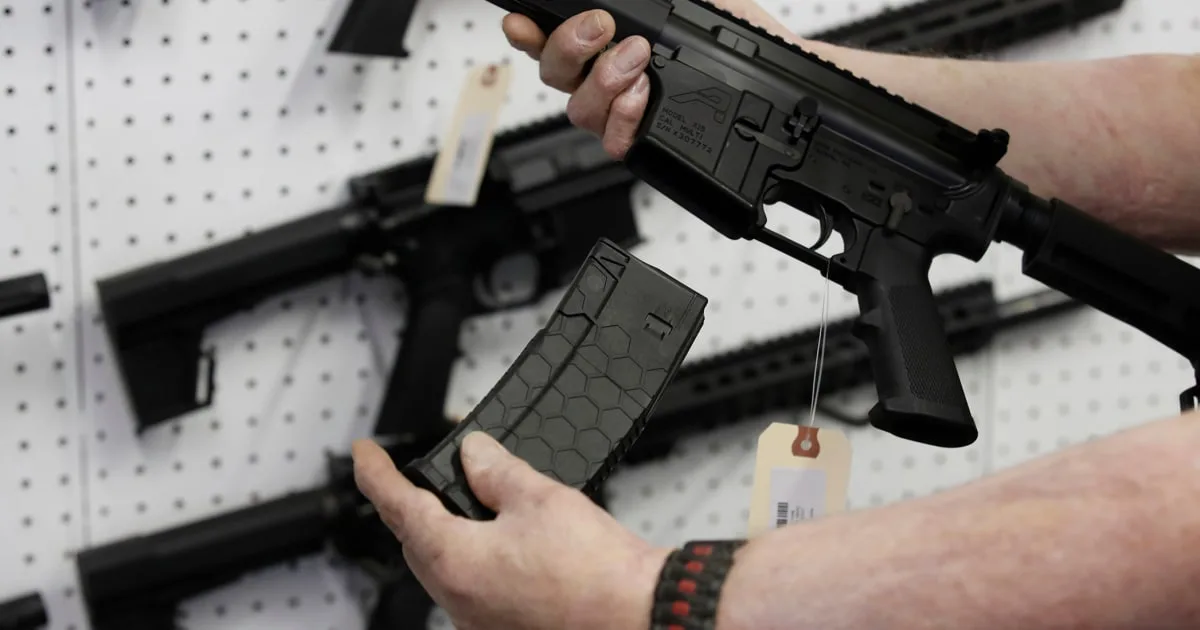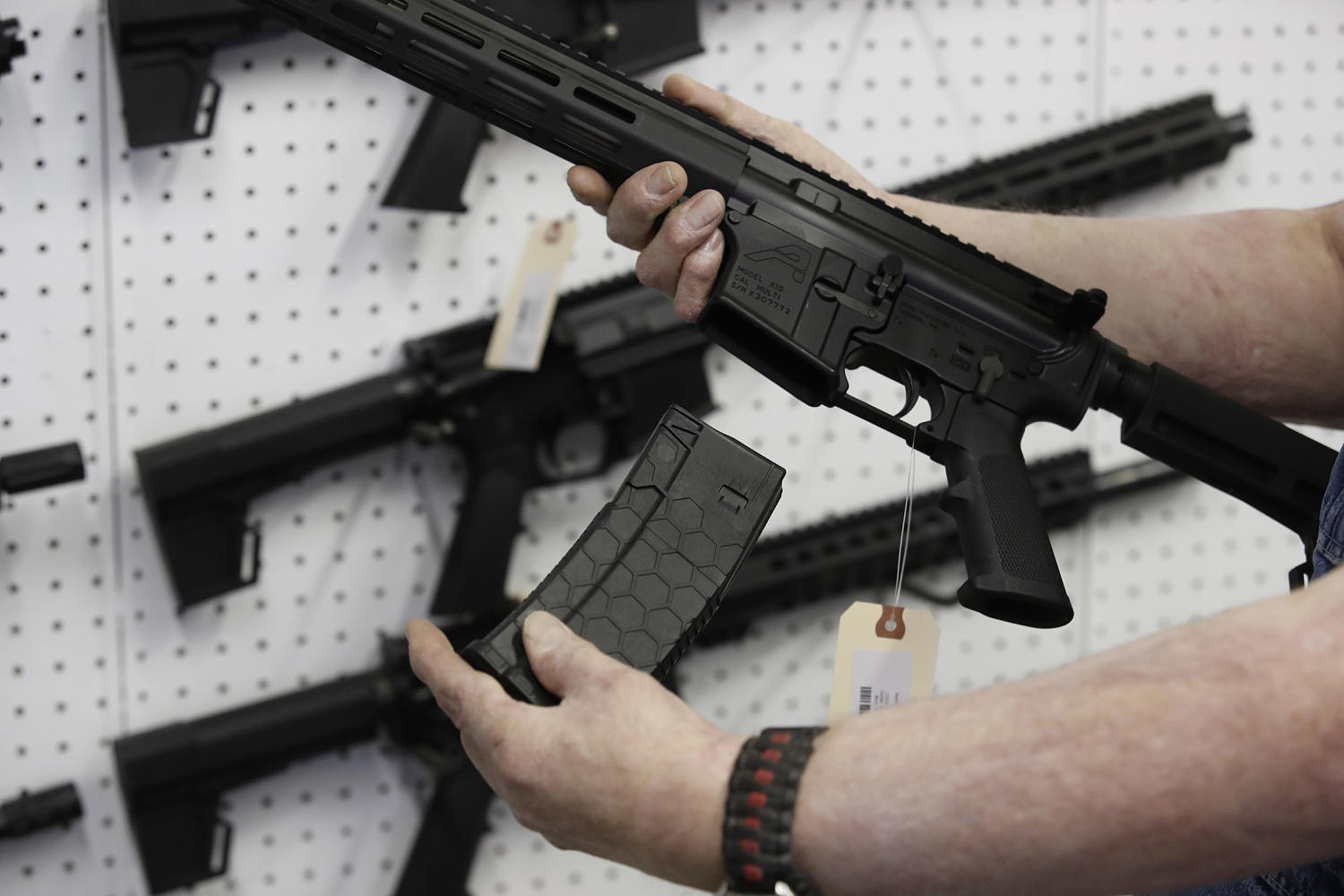

WASHINGTON — The Supreme Court on Friday left in place a longstanding gun restriction in the District of Columbia that bans magazines that hold more than 10 rounds of ammunition, opting once again to avoid taking up a new gun rights case.
The court, which has a 6-3 conservative majority that generally favors gun rights, turned away a challenge to the Washington, D.C., law just a few days after rejecting an appeal over a similar law in Rhode Island.
Then, the court also left in place Maryland’s ban on assault-style weapons including the AR-15 semiautomatic rifle.
Follow live politics coverage here
The court expanded gun rights in a major 2022 ruling that found for the first time that the right to bear arms under the Constitution’s Second Amendment extends outside the home. But the court has since frustrated gun owners by declining to take up cases that would expand upon that ruling.
The District of Columbia has long been a legal battleground over gun restrictions. The Supreme Court’s landmark 2008 ruling that for the first time found that people have an individual right to bear arms in self defense in their homes arose from a challenge to a D.C. law.
In the latest case, four gun owners challenged the restriction on large-capacity magazines that was enacted in the aftermath of the 2008 Supreme Court ruling, saying the restriction is unlawful under the later 2022 decision.
Both a federal judge and the U.S. Court of Appeals for the District of Columbia Circuit upheld the law.
The appeals court, in a 2-1 vote, said in a ruling last year that although large-capacity magazines are arms under the Second Amendment and have been in common use for years, they can be regulated because they are “particularly dangerous.”
Last summer, the Supreme Court sidestepped multiple gun-related disputes soon after it issued a ruling that upheld a federal law that prohibits people subject to domestic violence restraining orders from possessing firearms.
In other action on pending appeals Friday, the court decided against taking up a significant election case involving mail-in ballots in the battleground state of Pennsylvania that pitted Republicans against Democrats.
The decision leaves intact a Pennsylvania Supreme Court ruling that said voters who send mail-in ballots that are flagged as defective can then file a separate provision in-person ballot.
The Republican National Committee was seeking to overturn the 2024 state court decision, while the Democratic National Committee was defending it.







